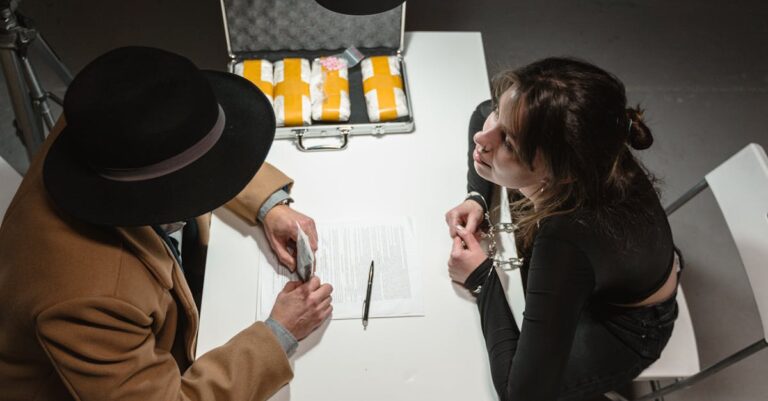
The rain tasted like rust. It hammered against the corrugated iron roof of G Catedral da Lua Negra, a constant, insistent rhythm that mirrored the frantic beat of my pulse. Lisbon clung to me, slick and fragrant with wet stone and saltwater. The air hung thick, a bruised purple mixed with the scent of damp earth and something else… something intensely floral, clinging to the edges of my senses.
I ran a hand over the rough bark of an ancient eucalyptus, its leaves shimmering under the weak light filtering through the canopy. The cathedral wasn’t a church in any conventional sense. It was a tangle of overgrown trees, meticulously sculpted shrubs, and forgotten fountains – a defiant pocket of wilderness crammed between buildings in the Alfama. Lilliana Borges had built it, or rather, *became* it.
Lilliana. Her name tasted like dust and a forgotten spice. She’d vanished six months ago, leaving behind only this place and hundreds of notebooks filled with obsessive drawings and descriptions of flowers that shouldn’t exist anymore. Petrichorrhean Ghosts, she called them – blooms resurrected from vanished ecosystems, imprinted on rainwater and clinging to the damp air.
I adjusted the strap of my backpack, feeling the weight of her notebooks digging into my shoulder. Each page was a meticulous study: watercolors depicting blooms in impossible hues, detailed diagrams of root systems and pollen structures. She’d tracked a single Iberian poppy variant – *Rosa petraea corvus* – to extinction, its beauty reduced to a spectral echo in her research.
The locals mostly avoided G Catedral da Lua Negra. They whispered about the curse, a lingering effect from the initial foundations of the place – supposedly laid on a site where a forgotten Moorish prince had drowned himself, heartbroken over a lost love. The rain always came in cycles, relentless and destructive, blamed on the prince’s sorrow echoing through the earth. Some said the cathedral itself was a sympathetic resonator, amplifying the natural grief of the water.
My job wasn’t glamorous. I was a botanist, specializing in endangered species recovery – a field increasingly dominated by genetic databases and sterile labs. But Lilliana’s work felt… different. It wasn’t about preserving DNA; it was about resurrecting a *feeling*, a memory of abundance long gone.
I pushed deeper into the cathedral’s embrace, wading through a knee-deep stream swollen with runoff. The air grew cooler, carrying the richest scent of decaying leaves and something intensely sweet – like overripe figs and rain. I pulled out a small trowel, carefully digging in the mud near a moss-covered stone basin.
“Anything?” Miguel asked, his voice a low rumble beside me. He was a groundskeeper for the adjacent bakery – perpetually covered in flour and smelling faintly of cinnamon. A pragmatic man, Miguel didn’t understand Lilliana’s obsession, but he respected her dedication to this strange corner of the world.
“Just more mud,” I said, scraping away at the earth. “But there’s something… disturbed here.” The soil felt lighter, looser than the surrounding earth.
“Lilliana was meticulous,” Miguel observed, his brow furrowed. “She wouldn’t just dig randomly.”
I knelt, carefully sifting through the mud with my fingers. My hand brushed against something smooth and cool. I pulled it out – a shard of iridescent blue glass, shaped like a petal.
“This isn’t native,” I stated, turning the fragment over in my hand. It shimmered with an inner light, reflecting the gloom of the cathedral back at me.
“What is it?” Miguel asked, peering over my shoulder.
“I don’t know,” I replied, studying it closely. The color reminded me of the *Rosa petraea corvus*, a flower Lilliana had described in agonizing detail – a bloom so rare, it was less a plant and more a legend. Her notebook contained sketches of similar glass fragments, supposedly used by the Moorish prince to decorate his court.
A sudden downpour erupted, drumming against the roof and washing away a layer of mud. I shielded my eyes, watching as the water flowed across the cathedral floor, carrying with it a new fragrance – an amplified version of the lost blooms.
“She wasn’t just studying flowers,” I muttered, feeling a prickle of urgency. “She was trying to recreate them.”
I followed the stream, deeper into the cathedral’s heart. The light faded further, and the air became heavy with an almost palpable grief. I found a small clearing dominated by a single, ancient oak, its roots intertwining with the remnants of a forgotten fountain.
And there it was. A single bloom, clinging to one of the oak’s branches – a *Rosa petraea corvus*, vibrant and impossibly beautiful in the gloom. It hadn’t grown naturally, not in this location. The petals were coated with a thin layer of iridescent glass – the same material as the fragment in my hand.
I reached out, hesitant, and gently touched one of the petals. As my fingers brushed against it, a flash of fragmented memories flooded my mind – Lilliana’s voice, her meticulous notes, and an image: her kneeling before the oak tree, meticulously applying shards of iridescent glass to its branches.
She hadn’t just discovered the flower; she’d *engineered* it, using rainwater and glass to coax a ghost back into existence.
A wave of sadness crashed over me, mingled with a profound respect and a terrifying realization. Lilliana hadn’t sought to preserve the past; she’d been trying to rewrite it, one petal at a time.
A low moan echoed through the cathedral as a particularly violent squall blew in, momentarily blinding me with rain and spray. As the deluge subsided, I noticed something new – a small indentation in the mud beneath where the bloom had been.
I knelt down and brushed away the remaining soil, revealing a smooth, rectangular stone beneath – an ancient tile, bearing the faint outline of a Moorish crescent.
Lilliana hadn’t just resurrected a flower; she’d unearthed a forgotten history, a desperate attempt to mend a broken past by rebuilding it with the rain and shards of memories. And now, she was gone.
I felt a hand on my shoulder – Miguel, his flour-dusted face grim. “She wouldn’t have left this place,” he said, his voice softer than I’d ever heard it. “This is where she belonged.”
The rain continued to fall, a relentless, mournful rhythm. As I looked out at G Catedral da Lua Negra – a testament to obsession and the enduring power of lost beauty – I understood. Lilliana hadn’t just been a botanist. She had become the keeper of echoes, a conduit for the rain and grief that pulsed beneath the streets of Lisbon.
And I knew, with a certainty that settled deep in my bones, that my work had just begun.
—


